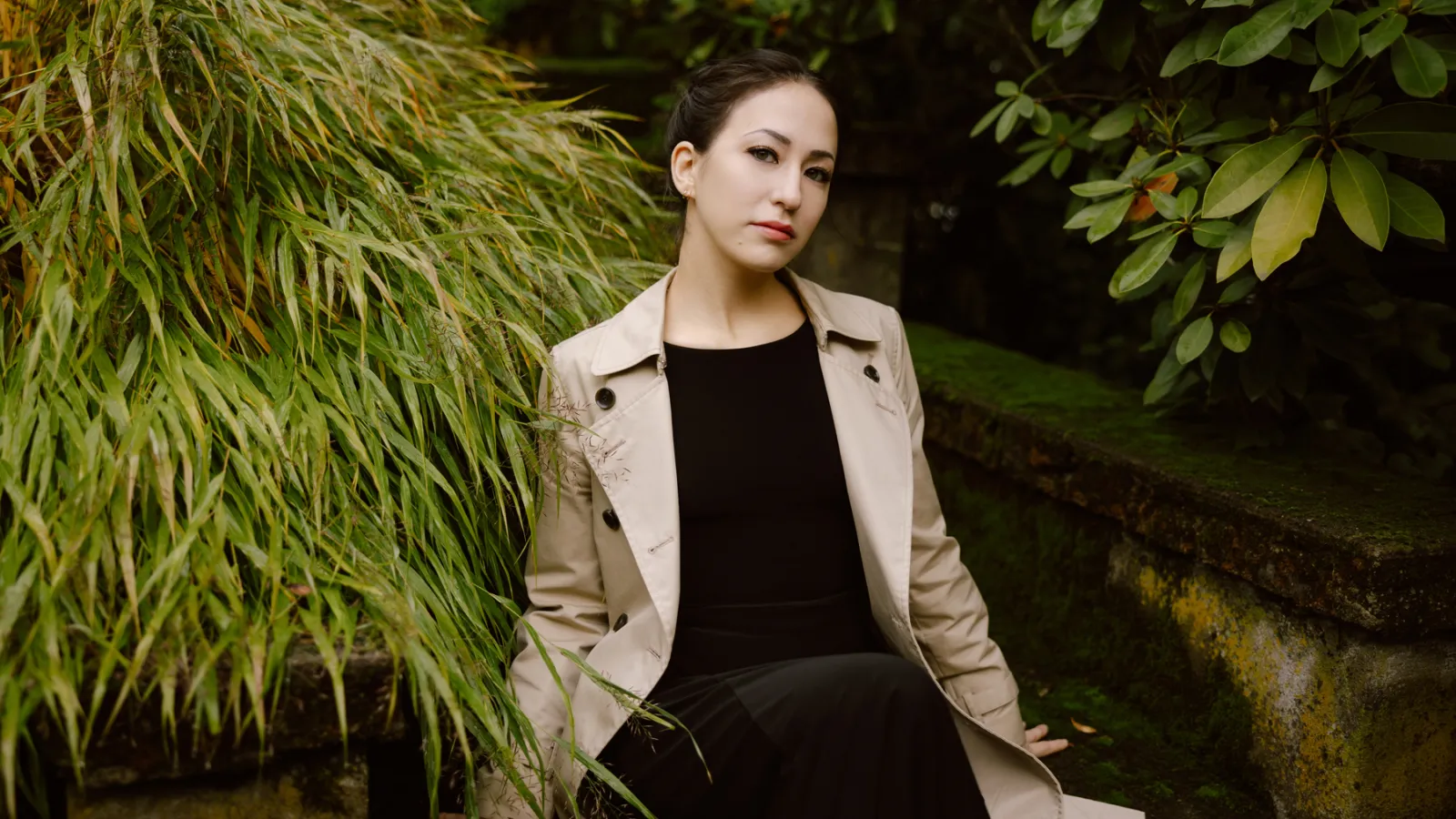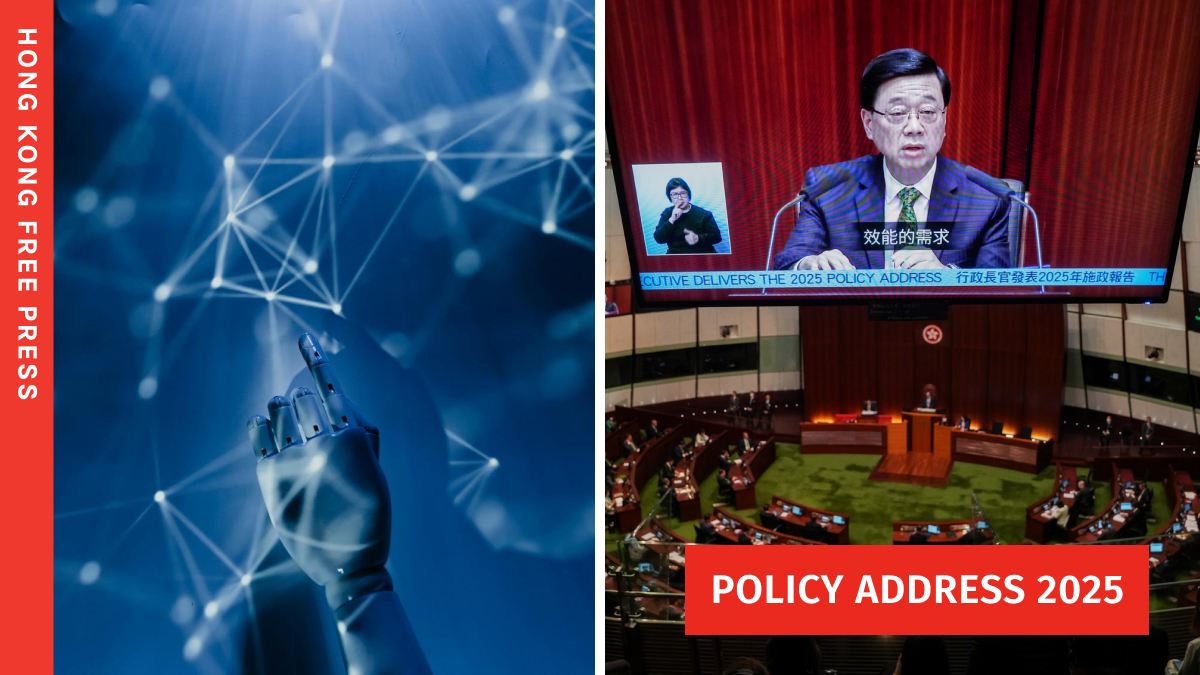
It’s a great time to be into fanfiction.
The space is currently in the throes of a digital gold rush for content seekers and creators. There’s something for everyone, about practically anything. But fanfiction, long a force in the corners of the internet that managed to escape the commercial monotony of tech consolidation, has broken its containment. People have noticed what’s happening on places like Wattpad, Archive of Our Own, and FanFiction.net. As online communities like BookTok erode the barriers of entry to the spaces associated with fan work, things are changing.
One not-so-secret secret of the publishing and entertainment industry is that for years now fanfiction forums have been a fertile ground for harvesting content aimed at mass market appeal. E. L. James’ Fifty Shades of Gray, Cassandra Clare’s The Mortal Instruments, and Ali Hazelwood’s The Love Hypothesis all began their published lives as fanwork — about Twilight, Harry Potter, and Star Wars, respectively. Fanfiction is by law free for public consumption, because to sell it would be to violate the intellectual property rights of the original work’s author or creator. Where publishers would once take pains to try and bury the origins of works adapted from fanfiction for traditional publication, these days, amid the explosion in public interest, they’re leaning in.
Enter Alchemised, the debut novel of the Portland based writer who goes by SenLinYu. But Sen already has legions of fans who adore their storytelling, have for years clung to her every post and update, and have read the digital equivalent of thousands of pages of her writing.
Set to be published on Sept. 23, Alchemised is an adaptation of Sen’s wildly popular Harry Potter fanfiction Manacled, written on the fanfiction hosting website Archive of Our Own between 2018 and 2019. The “dystopian horror story” and “tragedy,” as Sen has described it, explored an alternative universe that loosely melded together the worlds of J.K. Rowling’s Harry Potter and Margaret Atwood’s The Handmaid’s Tale. Centered around a morally fraught romance between Hermione Granger and Draco Malfoy (a “Dramione,” for those uninitiated to fandom lingo) the plot is decidedly dark. The Order of the Phoenix had lost the second wizarding war, and all manner of war crimes are being committed in the aftermath of Voldemort’s triumph. Death, rape, medical abuse, and torture abound, happy endings don’t exist.
Editor’s picks
Manacled gained a devoted following. On BookTok, reading the fic — and chronicling the devastation of the reading experience — became a right of passage within the Harry Potter fanfic community. In February 2024, Sen announced that they had reached a deal with Penguin Random House to rewrite Manacled and publish it as an independent novel. That December, when it was removed from Archive of Our Own in preparation for Alchemised’ publication, Manacled was the second most read work ever posted on the platform.
Alchemised is the most anticipated release in a series of Harry Potter fanfiction adaptations released over the course of 2025, nearly all of them centered around “Dramione” romances. The book has now been stripped of any intellectual property belonging to the original works — in this case Rowling or Atwood’s books. To Sen, that process was almost liberating. “I really enjoyed that because it gave me a lot more room to move around and let the story evolve into itself. It also let me really craft the story in a way that was much more intentional,” they tell Rolling Stone.
There is no hiding Alchemised’s origins, and the built-in following of a popular piece of fanfiction is the type of marketing agencies have wet dreams about. Sen is selling out release events virtually overnight, and the movie rights to Alchemised have already been purchased by Legendary Entertainment — the production company behind titles like Dune, Inception, and The Dark Knight Rises — for over $3 million.
Related Content
Fanfiction benefits from the existence of an established universe, characters, plot, and story dynamics that writers can use to create all manner of storyline and imagined scenarios without having to build new worlds from scratch. To rewrite a piece of fanfiction for consumption outside of its contained fandom is to remove and replace the support structures within the work, and hope it stands on its own.
Sen describes the process as a cathartic exercise they “can’t imagine“ repeating with any of their other fan works. In Alchemised, magic is replaced with alchemy, the esoteric science of metal transformation and element-based immortality. Draco and Hermione become Kaine and Helena, England becomes Paladia, the dark arts become necromancy, and Harry Potter becomes Luke Holdfast. When it debuts to the public on Sept. 23, Sen’s legions of already devoted readers will likely spend hours picking apart what was changed between the two works. Sen is undaunted.
While many of their readers may already know the outlines of Alchemised’s plot, and are incredibly attached to the fic, it’s Sen’s hope that the two works will exist independently of each other for readers. “It was really a process for me to accept that [the readers] have Manacled,” they tell Rolling Stone. “That knowledge gave me the confidence to just be like ‘I cannot write this story to the same people that already have that one.’ I have to let them have that and I need to let this story stand on its own.”
On Monday night, about 900 fans gathered at a sold-out release event at a Barnes and Noble in New York City, and gushed over the prospect of finally having a copy of the already beloved book in their hands. None of those who spoke to Rolling Stone had anything but confidence in Sen. “It has been such a journey getting here, and I’m so appreciative of all your support and excitement every step of the way,” they told the crowd, as the clock struck midnight.
The applause rattled every shelf in the building.
This interview contains spoilers for Alchemised.
What was the adaptation process like? How did you deal with knowing there were things in Manacled you were going to have to let go of to make it work as an independent novel?
That was definitely hard. Especially because I was in the community with the people that were reading it, and was aware of the things that they really loved. During the first draft, when I was doing the rewrite, and even into the second one, I was really struggling with the idea of, “If I change this, people will be upset and over-weighting that concern in a lot of my decisions. Trying to make the story work around what I thought people would be upset about if I changed, rather than focusing on the story itself and trying to make the story into the best version that it could be. I gave a very big warning so people can download Manacled. The people that want that version — who are deeply invested in that version — I tried to give them a lot of time to make sure that they had that version saved [before it was removed from Archive of our Own.]
I didn’t want it to be chained to an external context. I want what was in Alchemised to really speak to the story that Alchemised was. And then in that process, it let me really drill down, like into the various characters and thematic elements — the things that I specifically wanted to more deeply explore in Alchemised.
Was there any particular storyline, character dynamic, or character arc you struggled to translate to Alchemised from Manacled?
I had the two core characters, Kaine and Helena. I knew that there were certain things about them, their character psychology, their background, that I really needed to maintain and make sure that I nailed with them. But for the rest of the cast, I felt pretty capable of developing the characters, figuring out what I needed. I have the character that I need for this story. I need a different archetype. I need a different figure.
Like Helena and Lila, I developed them as foils to each other. I very directly tried to craft them as inverted mirrors of one another, and then the experiences and the things that they go through are reflective of those different characteristics.
Trying to develop Luke (Harry Potter in Manacled) was definitely one of the characters that I spent a lot of time contemplating, just because he is not present for the first part of the story. You witness Helena’s grief over his death, and yet you don’t really know him. Actually, the reference that I drew for him when I was trying to develop him, trying to show to readers why he was so important to Helena, was the [Japanese manga] show Frieren: Beyond Journey’s End. That story also starts with a group of characters, and by the end of the first episode, one of them is dead, and you just barely see him. And then you start getting to know him through the flashbacks and you only learn about him through the context of these memories.
So that was something that I referenced when I was developing Luke, trying to show why this loss was so meaningful to Helena, why she had fought in this horrific war. Because I did want that relationship to make sense, even though it wasn’t something that people were going to come in understanding the context.
That is one of the great advantages — and disadvantages —- of fanfiction: the canon is there, the lore is there. Did it feel like you were taking off the restraints of the existing Harry Potter universe?
Obviously, I’ve written a lot of other fan works, and I did not imagine ever redoing Manacled into something original. But having now gone through this process one time, I even more so can’t imagine doing it with any of the other [fics.] With Manacled, it was a story concept that started with a question and then a theme that I wanted to explore. Fan fiction was just the space in which I was writing at the time. It wasn’t that I had the idea as a fan work, it was that I had this idea, and I was doing fan work, and so that’s where I put it.
So when I decided to turn Manacled into Alchemised, I knew that I had this relationship dynamic that is very intrinsic to the story, then these are the themes. These are the questions that I was wrestling with when I was writing Manacled. And then there were a lot of the other things — the things that were not intrinsic to either those themes or questions or that specific relationship dynamic — where I could do whatever I wanted. It gave me a lot more room to maneuver and rebuild in a new world around the story. So I’m trying to change things, but not too much, because the whole thing breaks if I change too much.
Sexual assault, in the style of The Handmaids Tale, is a central part of Manacled’s plot, but you’ve changed some things in Alchemised. How did you go about adapting that part of the story in a way that was both sensitive to the subject matter, but still made sense for the plot?
The initial concept for Manacled came from watching The Handmaid’s Tale TV show, and it wasn’t about the surrogacy thing. The question that initially inspired it was, “What if [Fred Waterford] was a spy?” What should they do in this situation? Do they blow their cover because they consider this to be an unforgivable act, and then whatever they’re doing to try to bring this regime to an end that’s just lost now? Or do they commit this horrific act for the sake of this larger picture? It’s kind of a trolley problem.
When I was starting to write it as a fan work, I knew that I had this mystery that I wanted to set up, and I was very nervous that people would key into it, because it was the second story that I’d ever written. So I leaned very, very hard into the visual and aesthetic of Handmaid’s Tale. I was really new to writing, and so was very much like, “I want you to feel this way, so I’m going to just plop down this thing that I know is familiar to people, so that you will feel that.”
So when I was working on Alchemised, I initially considered not having that element whatsoever in the story. Because that’s obviously a very controversial, dark element to have in the story — and the story already has a lot of other very dark elements. The reason that I ended up deciding, ultimately, to include it in a different iteration, was that I was encountering a lot of talk about eugenics in mainstream conversation among people that were oddly not conscious that they were talking about eugenics. Where it was all about economic losses if the population doesn’t stay at this level, or you should not have children unless you are this kind of person with this kind of money, who has gone to therapy, who has no trauma. So I felt it was a timely element to include in the story both positive and negative eugenics, having a story that dealt with both of those things felt relevant to all of the rest of the dynamics going on, it felt relevant to the war history.
The other thing was that in the relationship dynamic of Kaine and Helena, I didn’t want her to forgive him of a general crime against other people. So the the dark, deep end that he goes off of is in response to losing her, in response to trying to save her, is it had to be this really personal thing that happened between them. They’re hers to decide to forgive him for and whether you agree with that choice on her part or not, the idea was hopefully that you would at least understand why she would make that choice. If they stayed together, escaped, and everything at the end, and they’re together, it’s because she’s forgiven him of this thing that he didn’t do to her, but he did to all these other people. It felt disingenuous not actually dealing with the consequences of the actions and the choices that they made and the extremes that they went to in order to try to save one another.
You did a lot of research for the adaptation. Talk to me about that process, what you were looking into?
I’ve always had a passing interest in alchemy, so when I was trying to figure out what would be an interesting world-building concept that I could have a lot of fun with, and that felt different from most of what I was seeing in a lot of the sci-fi and fantasy that I was reading, alchemy just came to me.
Specifically, a little bit like Avatar: The Last Airbender, and the whole idea of being able to move and manipulate metal. Because that could be really cool for fighting in combat — because I knew I was writing a war story — so I knew I needed some sort of magic system that made for really interesting combat. And then alchemy, obviously, is very tied to metallurgy, but then it also has this whole element of being very obsessed with immortality and wealth and purification. And so all of these different very interesting elements that play into power struggles.
Humans have been obsessed with the idea of immortality, so if you were using alchemy to somehow be able to do things to the human body, where does that end? So that was where I started. I went and I got a bunch of books about the history of alchemy, and I was actually one of the first things I did was actually go and read a bunch of interviews with the author of Full Metal Alchemist. I knew I loved the world building, the transmutation circles and everything, that are in Full Metal Alchemist. So I was reading up about her work, and it was actually really funny, because she said that she tried to research it and be really accurate with it, and alchemy research was just so contradictory and didn’t make any sense. So she was able to be like, “I’m just going to do what I want to do with it then.”
I was like, okay, I guess that I’ll do that too. I’ll research enough to have an idea of what the consistent elements are, and then I can just do whatever I want. But then I ended up coming across this YouTube lecture by this on this channel, Esoterica, and the host did this interview with a Johns Hopkins scientist who has been researching alchemy and actually translating all of these old alchemical recipes and testing them and trying to be as accurate as possible, and then trying to test them and see what happens. And it has caused this sort of wild reckoning in the alchemy research world, where all of a sudden they’re having to do all this reevaluation.
The other big piece that I ended up discovering through that was that the metallurgists and alchemists from that period were very, very influenced by Aristotle and his work, which was very informed by Plato, and the whole idea of the heavenly forms. The idea that if the Earth is able to produce all of these things, and if we could just recreate those recipes, we can make those things too, and that there’s this heavenly ideal somewhere that we’re aspiring to on Earth. So it gave me a ton of not only world building for the practicalities of alchemy, but a philosophical background for building the whole world up from scratch. That’s part of why Palladia is super vertical, because, again, they’re trying to go up. And there’s this whole idea of the higher up you live, the closer to the heavens, the closer to the sun, the more you can associate yourself with the pure element. The closer to the divine, the more divine you must be — and so then you’re able to create.
Then from that you have the society that’s birthed this whole class system and this whole social hierarchy and everything.
Did you explore any other magic systems?Or did you settle on alchemy pretty quickly?
I settled on alchemy pretty quickly, for two main reasons. One was that the whole ethical conundrum of necromancy seemed like such a great sticking point. Part of the reason that idea came to me was because I was having a conversation with a friend about organ donation, and she had this super, super visceral reaction to the idea of organ donation — that anything — happening to her body after she was dead.
And I was like, “You are not there anymore. It’s just a corpse, why would you care what they do with it?” But she was like, “Absolutely not. I would never want anyone to do anything to my body.” So that sparked in me this idea that this would be such a sticking point ethically, of people who would see a corpse as a resource. Do you want your son to go fight in a war? Or would you rather just use this dead body that doesn’t feel anything? Versus the other side that would be like, “That is the worst violation of anything messing with the dead, disrespecting the dead is like, the decline of all of civilization would begin right there.”
Then I thought, “If I have one side using necromancy, what does the other side have?” And so alchemy, and the philosophical ideas surrounding alchemy, all kind of interplayed into those same themes of immortality and metalwork.
Going in, I knew that I wanted the character of Kaine to be associated with Aries, and Aries is associated with iron, and iron is the metal of war in literary motifs and mythology. So knowing that I wanted that familial [metallurgical] association to be built into the story, alchemy played really well into that. I was these little tiny things that just ended up all feeding really well into each other,
Having read a lot of your fanfiction — and your blogs — you’ve always approached your stories with a lot of intent. Fanfiction gets a bad rep sometimes of not being a serious artistic endeavor. Having existed in the space for so long, I’m curious how your feelings on fanfiction have evolved. Do you still plan to do fic work?
So I love writing fanfic, it’s definitely not something that I think I would ever leave behind.
It’s such a contained space, especially for if you’re trying to develop some new technique or write a style, or scene, or type of action, or sex, or whatever that you haven’t done before and you don’t have to invent the whole context.
You can just be like, “Alright, I know these two characters, I know the situation. I can just go from there.” It’s great. I wrote so many one shots, because I love being like “I want to write about this specific thing, and that is all that I’m writing.”
But the thing with fanfiction is that it is like drawing with a pencil, the range of what people are doing because they have a pencil and a piece of paper in hand is humongous. Somebody can be incredibly serious about their art, and so they are going to draw these absolute masterpieces with graphite, versus a kid who is doodling in the edges of their school notebook.
People tend to look at fan fiction and they just see the one thing that some people do with a pencil. There’s so many other things that people can do with fan fiction. To me, part of the appeal of fandom is that it can be this common ground for putting out new ideas, it’s art in a very artistic space, where you’re not doing this because you’re trying to make money, you’re not trying to sell anything. You are very much writing this thing because it is interesting to you, and you’re doing it in your free time.
Trending Stories
When I came into fanfiction, I wanted to write something, and I knew that whenever I tried to write something original, I would hit two or three chapters in, and I would just be consumed with self doubt. I would be certain that it was terrible, and I wouldn’t have anybody to show it to, and then I would just give up. And I would say, “Well, maybe someday I’ll write, but not today.” So when I decided to write fan fiction it was specifically because I thought if there are people reading this because I’m posting this online, I’ll feel obliged to keep doing it, and I won’t abandon it. I would feel too guilty to abandon it, so I have to finish it.
People come in for a million different reasons. My hesitation now is that fan fiction has really exploded into the mainstream, and there is a lot more of this weird pressure of people that it needs to be polished to a certain degree. That it needs to have effort and nuance to it. That makes me sad, because I just do feel like it is such a fun, creative space that is so communal. I’m very concerned but hopeful that fandoms will weather it, because it is so much a space that’s born from shared passion.



